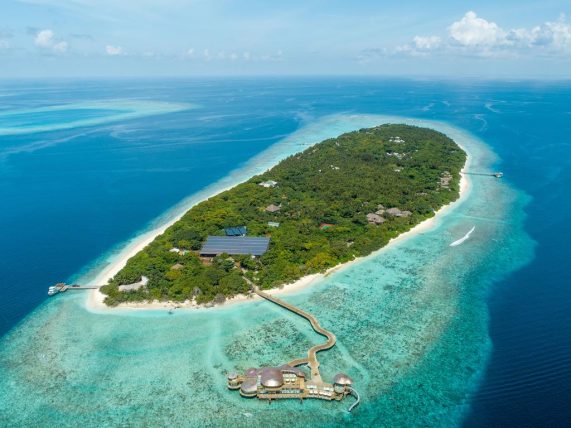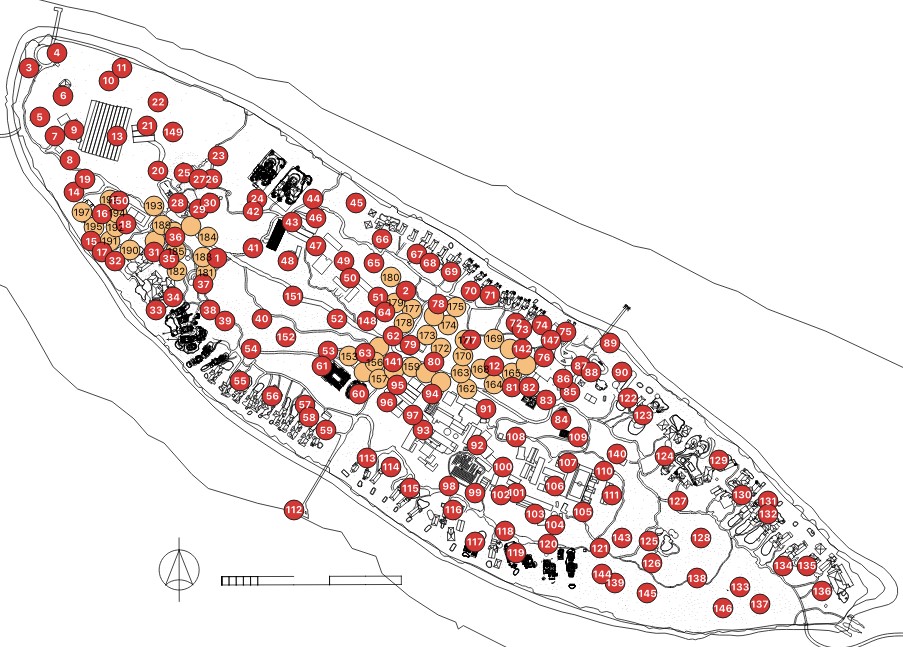

Because of diseases like Dengue and Chikungunya, mosquitoes pose a serious threat to the people of the Maldives, as well as foreign tourists. For many decades, the response to this problem has been the widespread use of chemical pesticides. However, in many islands, mosquitos have become partially or fully resistant to chemicals, necessitating the need for new, non-chemical, approaches to mosquito control. For instance, the long-term use of insecticides on Kunfunadhoo island has resulted in mosquitoes that are highly resistant to pyrethroid insecticides, commonly used for fogging/misting.
Soneva is currently pioneering the use of a non-chemical approach to mosquito management, based on the widescale use of traps. Two kinds of traps, one that will catch female mosquitoes that are looking for blood, the other that traps female mosquitoes ready to lay its eggs are used — 495 traps in total. See images of the traps below, along with their placement around Soneva Fushi.

 The resort reports that the results since the project started in June 2019 have been spectacular, with a massive reduction in mosquito numbers (parts of the island are now practically free of mosquitoes), Moreover, since last June, the resort has stopped spraying any chemical pesticides. A very welcome effect of this approach is the impact on biodiversity. Species of the carpenter and bumblebees, dragonflies, butterflies, etc. are slowly finding their way back to the island. Ultimately this will bring the ecosystem back in balance and result in a reduced human footprint on the unique ecosystem.
The resort reports that the results since the project started in June 2019 have been spectacular, with a massive reduction in mosquito numbers (parts of the island are now practically free of mosquitoes), Moreover, since last June, the resort has stopped spraying any chemical pesticides. A very welcome effect of this approach is the impact on biodiversity. Species of the carpenter and bumblebees, dragonflies, butterflies, etc. are slowly finding their way back to the island. Ultimately this will bring the ecosystem back in balance and result in a reduced human footprint on the unique ecosystem.
The Maldives, as an island nation, lends itself perfectly to the approach taken by Soneva, and Soneva is keen to explore options for public-private partnerships to develop the same system on inhabited islands.
Media Contacts: Bart GJ Knols, PhD MBA. Email: b.knols@science.ru.nl or Akib Jahir, MSc (Soneva integrated pest manager).
Email: ipc-fushi@soneva.com